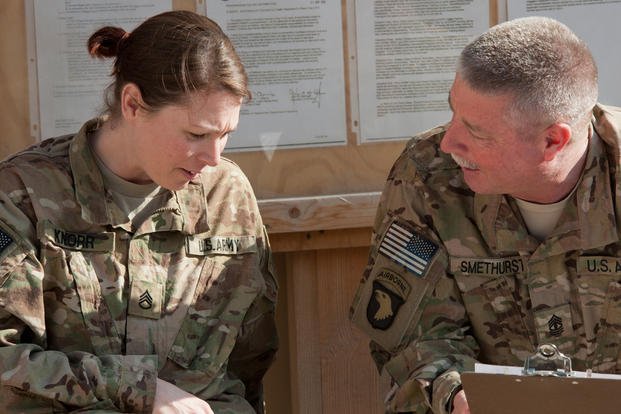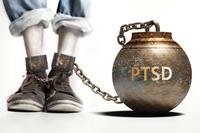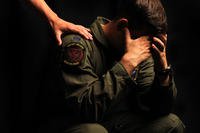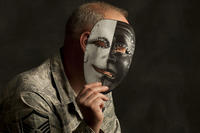Combat Stress Reaction (CSR) is most frequently known as shell shock or battle fatigue. It results in a range of adverse behaviors as a result of stress from battle. Some universal symptoms are exhaustion, decrease in responsiveness, hesitancy and uncertainty, feeling like you are disconnected and inability to focus. Combat stress reaction is generally short-term and should not be confused with acute stress disorder, or post-traumatic stress disorder, even though some of the symptoms are similar in nature.
Reactions to a combat experience can be emotional, physical, mental and even have behavioral reactions too. All reactions will differ from one person to the next. More importantly, it is imperative to normalize your reactions given your experiences instead of being overly critical of yourself if you are experiencing combat stress.
What are the key symptoms of combat stress, and what resources are available to help?
Emotionally you may:
- Feel frustrated
- Experience mood swings
- Become more fearful and have anxiety
- Experience feelings of sadness, hopelessness
- You may even have nighmares and flashback too
Some physical reactions may include: - Increased body aches and pains
- Trouble sleeping: either too much or too little
- You could have panic attack symptoms like, heart pounding, sweating and trouble breathing
- Changes in your appetite: eating more than usual or eating too little
- Woman may experience changes in their menstrual cycle
Mental reactions include:
- The inability to focus and concentrate
- Obsessive thoughts about the stressful event(s)
- Increase in thinking about death and dying
- Making impulsive decision or even showing a lack of judgment
- Making self- critical remarks
Behavioral Reactions include:
- Increased alcohol use or other substances
- Compulsive behavior like checking doors and locks for safety
- Increased anger: confronting others, throwing, breaking things
- Isolating from others
- Decreased sexual activity
It is important not to blame yourself if you are experiencing combat stress-related reactions. There are many ways to speak to someone about your concerns. The VA's National Center for PTSD is a good place to start and includes many helpful resources for you and your family.
Keep Up with the Ins and Outs of Military Life
For the latest military news and tips on military family benefits and more, subscribe to Military.com and have the information you need delivered directly to your inbox.





































